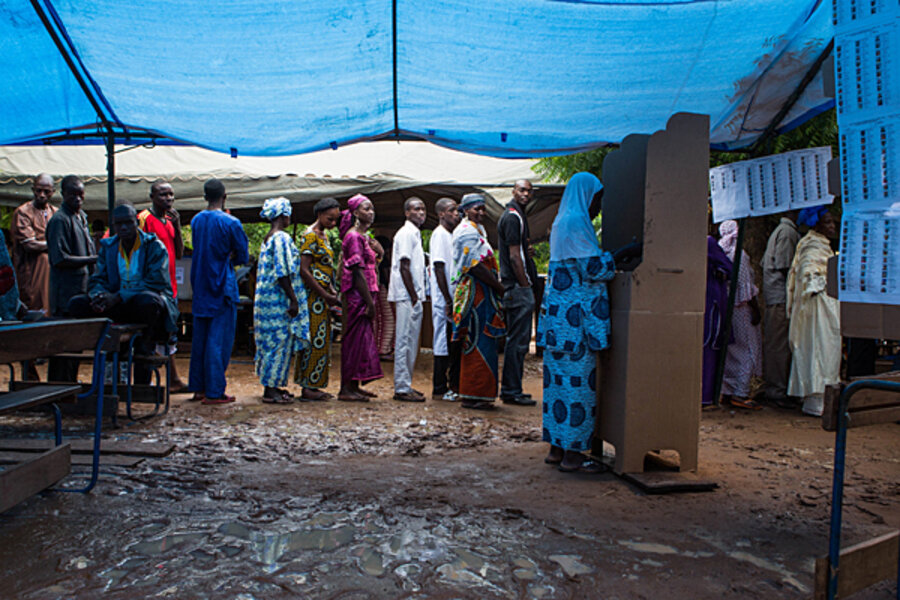Earlier this month, Malians went to the polls to elect a new president, eager to bring an end to more than a year of violent political instability that began when the country’s former leader, Amadou Toumani Touré, was overthrown in a coup in March 2012. The violence that followed Mr. Touré’s unseating splintered the country along religious and ethnic lines, and eventually prompted an international intervention led by French forces in early 2013. But as the fighting slowed, the scope of the humanitarian crisis it left behind became apparent.
Between March 2012 and March 2013, some 430,000 people were displaced by the violence, and 170,000 fled the country altogether. Continued scattered violence and unexploded landmines have kept most from returning. Fighting has also disrupted the provision of humanitarian aid. In April 2012, for instance, rebel forces forced the UN’s World Food Programme to temporarily suspend several of its operations in Mali after warehouses were looted and hundreds of tons of food stolen.
Both the violence and the refugee crisis in Mali are centered far from the capital of Bamako, in the country’s windswept and impoverished north, where infrastructure, health care, and education were decrepit even before the war began. Much of what was there was destroyed in the fighting. Meanwhile, a drought hit the country in late 2012, putting more than a million people at risk for malnutrition and starvation.
To help:
Mali’s crisis drew massive international attention when it began in 2012, but since then, donor fatigue has set in. The International Business Times reported that 30 percent of aid need went unmet in the country last year, and to date this year only 34 percent of the aid appealed for has been funded.
Major aid organizations urgently seeking donations for their operations in Mali include the UN World Food Programme, Oxfam, and World Vision.








